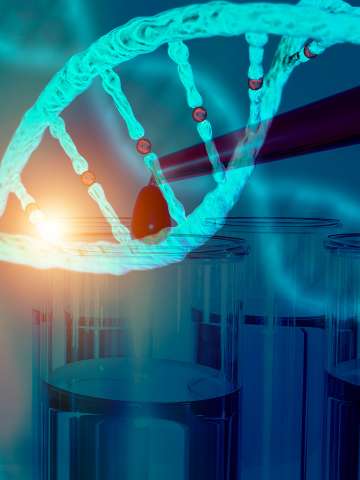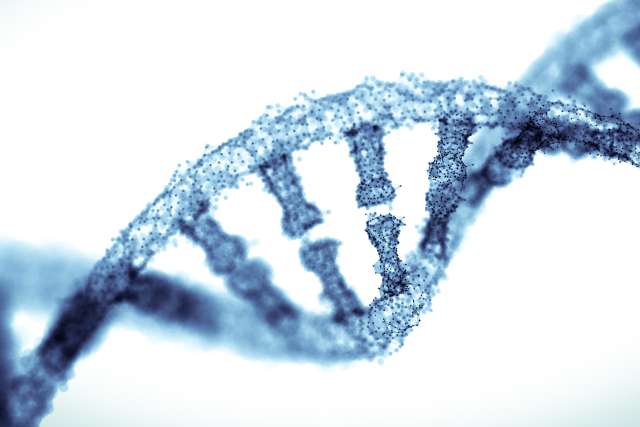Cancer Genetics Testing & Counseling
Our genetics experts use sophisticated technology to evaluate your risk of cancer and other disease. We offer cancer genetics counseling, guidance and support to help you make important decisions about your health with these risk factors in mind.

UCLA Health excellence in cancer genetics
Certain types of cancer run in families. Knowing your personal risks gives you the power to make important decisions about your health and potential prevention. Our cancer genetics experts combine innovative testing with individualized counseling to help guide you toward the choice that is best for you. When you choose UCLA Health for cancer genetics counseling, you’ll find:
Commitment to research: Our scientists are dedicated to the advancement of cancer genetics and, ultimately, saving lives.
Personalized consultations: Our genetic counselors provide tailored risk assessments using the most current tools and tests available.
Compassionate counseling: UCLA Health’s genetic counselors support and gently guide you and your loved ones throughout the discovery process.
Our services
Our cancer genetics experts evaluate inherited risk factors that make individuals and families more susceptible to certain cancers. We offer the following services to both adults and children:
- Genetic counseling: Our board-certified cancer genetics counselors help identify your inherited cancer risks and advise you on how to move forward.
- Genetic testing: We test a blood or saliva sample to look for genetic mutations that can increase cancer risk.
- Hereditary cancer-risk assessments: Genetic counselors examine your family history to identify increased cancer risk.
- Pediatric Cancer Predisposition Clinic (PCPD): Our genetic counselors provide personalized assessments for children age 18 or younger who have a genetic disorder that increases their cancer risk.
- Tailored prevention plans: We create a personalized strategy to reduce your risk of developing a hereditary cancer.
Hereditary cancer syndromes
Parents can pass down certain gene mutations to their children. These inherited changes result in hereditary cancer syndromes, including:
Familial adenomatous polyposis (FAP): A condition that can lead to colon cancer. FAP is characterized by precancerous polyps in the gastrointestinal tract.
Hereditary breast and ovarian cancer syndrome (HBOCS): The most common type of inherited breast cancer. Inherited genetic mutations to the BRCA1 and BRCA2 genes increase a woman’s risk for breast and ovarian cancers. The BRCA gene mutation can also increase cancer risk in men, potentially leading to prostate or pancreatic cancer, melanoma and other cancers.
Hereditary leukemia and hematologic malignancies syndromes: Inherited genes that create an increased risk of leukemia and other blood diseases.
Li-Fraumeni syndrome (LFS): A rare genetic mutation of the TP53 gene that increases the risk of many types of cancer. The risk relates to soft tissue sarcomas, breast cancer, brain tumors, leukemia and lung cancer.
Lynch syndrome: A predisposition for early onset colorectal cancer and cancer caused by mutations in the MLH1, MSH2, MSH6 or PMS2 genes. Lynch syndrome can also lead to extracolonic tumors.
Multiple endocrine neoplasia (MEN): A group of hereditary conditions that increase the risk for tumors in hormone-producing glands. Mutations in the MEN1, RET and other genes can lead to thyroid and endocrine cancers.
Von Hippel-Lindau disease (VHL): Abnormal growth of blood vessels in the retina, brain, spinal cord and other parts of the nervous system. Inheriting the VHL gene increases the risk of developing certain cancers, including kidney cancer.
Interventions we offer
Our cancer genetics team partners with you to integrate your genetic testing results into your overall health care plan. That plan can include:
- Cancer screenings: A high-risk surveillance strategy to reduce future risk by finding cancer in its very early stages.
- Medications: Some medications can help reduce the risk of developing certain cancers.
- Risk-reducing surgery: A procedure to remove high-risk tissues that could develop into cancer, such as breast or ovarian tissues.
Our expert cancer genetics team
UCLA Health’s Cancer Genetics Program relies on the expertise of our genetic scientists to determine your cancer risk. Our experienced genetic cancer teams lead patients through the genetic testing process and provide compassionate guidance every step of the way.
Contact us
To make an appointment with a genetics counselor at UCLA Health, call .
Find your care
Learn about your inherited risks so you can make informed decisions about your health care. For more information, connect with a cancer care specialist at .
